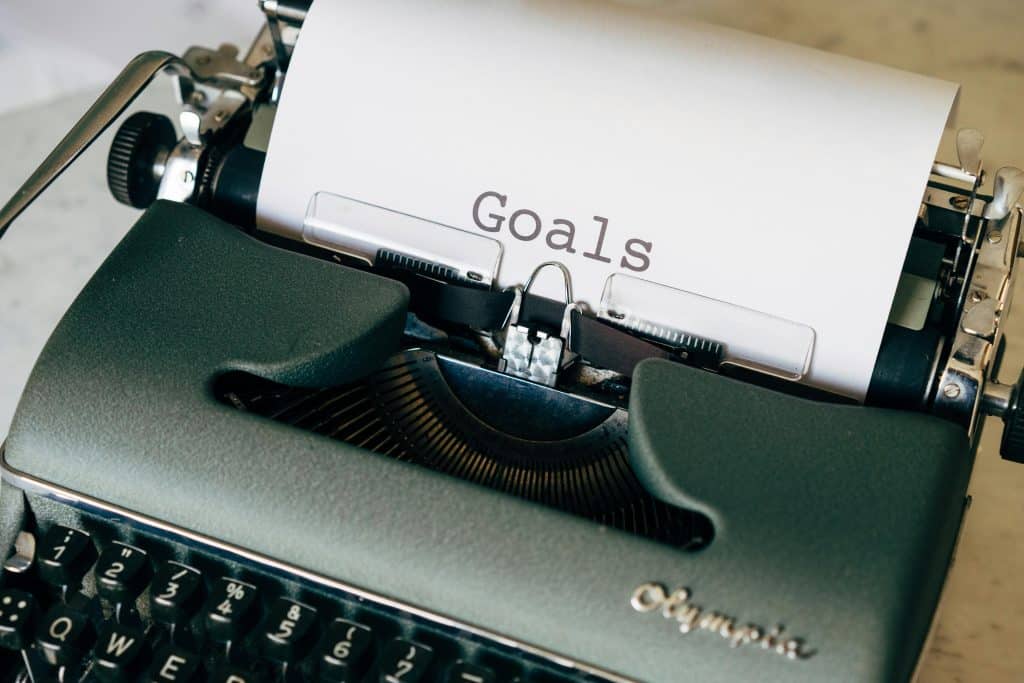In a world driven by productivity hacks, fast-paced routines, and relentless ambition, one quiet but powerful habit is starting to gain mainstream attention: regular reflection. Once considered a luxury for thinkers and philosophers, reflection is now being embraced by high achievers, professionals, and productivity experts as a crucial part of goal achievement.
Why regular reflection helps you achieve your goals isn’t just a self-help catchphrase. It’s a science-backed strategy that aligns your actions with your intentions, keeps you accountable, and sharpens your focus. As more people seek sustainable ways to progress—rather than burning out—reflection has become a practical necessity, not just a mindful practice.

Psychological research shows that self-reflection improves learning, decision-making, and behavioral change. A study from Harvard Business School found that employees who spent 15 minutes at the end of the day reflecting on their work performance improved by 23% over 10 days compared to those who didn’t reflect at all (Di Stefano et al., 2014).
Why? Because reflection allows for metacognition—thinking about your thinking. It helps you step back, evaluate your efforts, learn from outcomes, and plan more effectively.
More recently, reflection has also been tied to better emotional regulation and increased resilience, which are both essential for long-term goal pursuit (Morin, 2021).
Key cognitive benefits of regular reflection:
- Strengthens memory recall and pattern recognition
- Encourages emotional processing and growth
- Promotes strategic adjustment and self-correction
Emerging Trend: Reflection as a Professional Performance Tool
Reflection isn’t just for journaling enthusiasts or mindfulness coaches. In the last few years, it’s become a growing trend among executives, startup founders, and corporate teams. Leading organizations like Google and Microsoft are implementing reflection practices into their performance reviews, team debriefs, and even onboarding processes.
Tools like “after-action reviews” and “learning journals” are being adopted in the workplace, not for compliance but for actual improvement. It’s not just about what you’ve done—it’s about how you think about what you’ve done.
Tech entrepreneur Tim Ferriss famously uses weekly reflection to analyze his calendar and assess energy drains and gains. Similarly, LinkedIn CEO Jeff Weiner allocates time for “nothing”—just thinking—to avoid reaction-based decision-making.
In other words, regular reflection helps you achieve your goals by giving you time to learn from the path, not just chase the next task.
Reflection as a System: Not Just Navel-Gazing
Reflection is most powerful when it’s intentional, structured, and consistent. A vague attempt to “think about your goals” once in a while isn’t enough.
Here are structured ways people are reflecting for results:
- Weekly Reviews: Many professionals use Sunday or Friday evenings to assess what went well, what didn’t, and what needs adjusting for the week ahead.
- End-of-Day Journaling: Even five minutes of logging wins, challenges, and lessons keeps your progress top-of-mind.
- Monthly Goal Check-ins: This gives you the distance needed to zoom out and reassess priorities, energy allocation, and effectiveness.
- Quarterly Life Planning Sessions: Many high performers spend a half-day each quarter doing deeper reflection on personal and professional goals, asking: What’s working? What needs to shift?
When built into a routine, reflection creates a natural feedback loop. You don’t just set goals—you evolve them based on what actually works.
Why Reflection Keeps You Focused
One of the key reasons regular reflection helps you achieve your goals is that it builds self-awareness. And self-awareness, according to a 2020 study published in Harvard Business Review, is a strong predictor of leadership success and personal clarity.
Goals often lose their power not because they’re wrong—but because we drift. We get caught up in day-to-day urgencies, peer pressure, or arbitrary metrics. Reflection pulls you back to your “why.” It forces you to ask:
- Is this still important to me?
- What am I learning here?
- Where am I wasting energy?
These questions prevent autopilot behavior and reactive goal-chasing. They restore intentionality.
The Role of Technology in Modern Reflection
As reflection becomes mainstream, tools and platforms are adapting. Apps like Day One, Journey, and Reflectly offer easy, customizable journaling formats. Other platforms like Notion and Roam Research provide structure for goal-tracking and linked thinking.
More interestingly, companies like Reclaim and Sunsama are now offering integrations that automatically prompt users to reflect at the end of the day or week, blurring the line between productivity software and self-reflection tools.
This hybrid of tech and introspection is gaining traction, particularly among knowledge workers who want data-driven insight without losing the human element.
How to Make Reflection a Habit (Without Losing Steam)
Consistency matters more than perfection. Start small. Even a few minutes can make a difference if done regularly.
Practical steps to build your reflection habit:
- Schedule it: Set a recurring calendar reminder. Morning and evening are popular times.
- Make it low-pressure: Use bullet points, voice memos, or quick prompts like “What worked today?”
- Keep it visible: Use a journal or app you enjoy opening.
- Link it to an existing habit: Attach it to something you already do—your morning coffee or bedtime routine.
When Reflection Goes Wrong: Avoiding the Traps
Not all reflection is helpful. Overthinking or ruminating can lead to indecision and anxiety. The key difference between helpful reflection and unproductive rumination is purpose.
Reflection should clarify and empower—not paralyze. Focus on:
- What you learned
- What to do next
- What matters most
Reflection is a tool for movement, not a place to get stuck.
Why Now Is the Time to Reflect
In a post-pandemic world where burnout is high, clarity is low, and routines are being redefined, reflection offers something rare: a chance to make sense of it all. It’s not about slowing down just for the sake of it—it’s about checking whether your speed is taking you where you want to go.
With AI automating tasks and remote work blurring life boundaries, reflection is increasingly being viewed as a competitive advantage. It helps you prioritize, adapt, and stay aligned—not just to your goals, but to your values.
And as more people step away from hustle culture and move toward meaningful productivity, reflection is no longer optional—it’s essential.
Conclusion
Regular reflection helps you achieve your goals by keeping you aligned, motivated, and informed. It’s a process that transforms action into insight and insight into smarter action. Whether you’re trying to launch a new business, improve your health, or simply live more intentionally, reflection is a proven method for making steady, meaningful progress.
And in today’s fast-changing world, the ability to pause, think, and course-correct may just be the most powerful productivity tool of all.
References:
- Harvard Business Review – Di Stefano, G., Gino, F., Pisano, G. (2014). Learning by Thinking: How Reflection Aids Performance.
https://hbr.org/2014/04/learning-by-thinking-how-reflection-improves-performance - American Psychological Association – Morin, A. (2020). The Science of Self-Reflection.
https://www.apa.org/monitor/2020/01/self-reflection - McKinsey & Company – The Power of Reflection in Leadership.
https://www.mckinsey.com/capabilities/people-and-organizational-performance/our-insights/the-power-of-reflection-in-leadership










 Navigating Financial Challenges for Small Business Owners
Navigating Financial Challenges for Small Business Owners 

